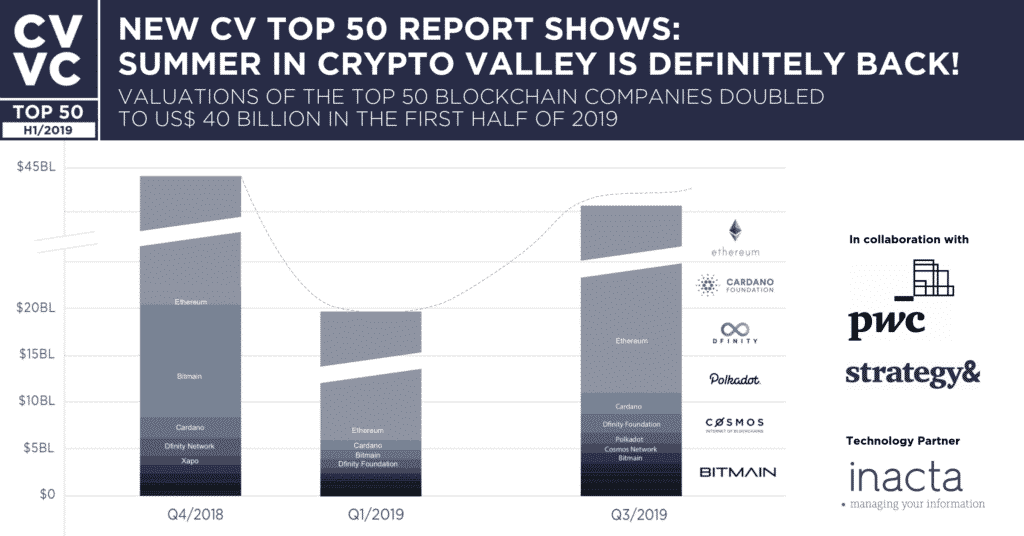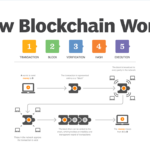The blockchain companies listed below demonstrate that there is real value being delivered despite the scepticism and hype.
The list below highlights some of the many blockchain companies that now using blockchain technology across a variety of sectors. As the portfolio of blockchain companies develops, a blockchain ecosystem is unfolding as the skills, investor and practical issues are being overcome.
There are now new business models being created that will inevitably disrupt markets.
Although blockchain is still in the early phase and not yet widely adopted, it is gaining traction and momentum.
Table of Contents
BLOCKCHAIN COMPANIES
As things go forward I will create a list of blockchain companies and a short profile of how they fit into the developing blockchain ecosystem.
SOME PRACTICAL USES OF BLOCKCHAIN
There are many promising application areas for blockchain technology beyond financial services. Blockchains could target improved government service delivery, and private blockchains could be used to facilitate information sharing and process coordination across agencies within the government.
Blockchains are a foundational horizontal platform technology that could be used in any industrial sector including agriculture, utilities, mining, manufacturing, retail, transport, tourism, education, media, healthcare, and the sharing/P2P economy.
Supply chain: tracking physical assets through changes in ownership and handling can be recorded and communicated through data stored on a blockchain. This implicitly creates provenance information for goods, and provides improved logistics visibility and supply chain quality. Key events within the supply chain could be linked to automatic payments with the use of smart contracts.
Digital rights and IP management: a blockchain can provide a trusted registry of media assets or other intellectual property, and can provide the ability to manage, delegate, or transfer access and rights information for those assets.
This blockchain companies infographic is just one of many blockchain infographics that help illustrate the importance of this revolutionary technology.
The Top Blockchain Companies
The Top 50 blockchain companies in Crypto Valley doubled their valuations in the first six months of 2019 from US$ 20 billion to US$ 40 billion.

Crypto Valley Already Counts Six Unicorn Blockchain Companies
The prior Crypto Valley Top 50 Report counted four Unicorns. Among those are three of the world’s biggest protocol projects: Ethereum Foundation, Cardano and Dfinity Foundation with its headquarters and over 40 employees in Zurich, as well as the mining company Bitmain Switzerland, currently gearing up for an IPO on a US stock exchange.
This quarter, there are two new Unicorn additions: Cosmos Network and Polkadot. Both are protocols and valued at more than US$ 1 billion each.
How BlockChain Companies Have Evolved
These are the top ten companies using Blockchain technologies and are creating new digital business models.
10 TOP COMPANIES USING BLOCKCHAIN
- SALT Lending
- Mythical Games
- Gemini
- Circle
- Coinbase
- Chronicled
- IBM
- Voatz
- Steem
- Shipchain
SALT LENDING
Industry: Fintech, Lending
Location: Denver, Colorado
What it does: SALT’s platform allows users to leverage their cryptocurrency for cash loans. Borrowers can lock into cash loans, from 1-36 months, by leveraging cryptos like Bitcoin, Ether or even Dogecoin. The company’s platform is available in a majority of US states and multiple countries and loans start at $5,000.
MYTHICAL GAMES
Industry: Gaming
Location: Sherman Oaks, Calif. and Seattle
What it does: Mythical Games is studio creating games and online experiences that feature true ownership of digital assets. The creation of a secondary digital economy, based on a blockchain, helps to verify scarcity and create a clean record of ownership over unique digital items. Mythical Games’ first blockchain-based game, Blankos, is scheduled for release in early 2019.
GEMINI
Industry: Fintech, Cryptocurrency, Trading
Location: New York, New York
What it does: Gemini is a digital asset exchange that allows users to buy, sell and trade cryptocurrencies. The company’s platform, using blockchain for both trading and cybersecurity purposes, allows individuals and institutional investors to trade everything from Bitcoin, to Litecoin and Ether.
CIRCLE
Industry: Fintech
Location: Boston, Massachusetts
What it does: Circle is an online money transfer and cryptocurrency investment platform. Without exchange rate fees, friends can transfer money in different currencies with a simple text. Recently, the Boston-based company began offering investment opportunities in seven different cryptocurrencies.
COINBASE
Industry: Fintech
Location: San Francisco, California
What it does: Coinbase is a digital portfolio that lets users buy and sell cryptocurrency. The company’s technology makes buying and managing cryptos easy with features like recurring buys and vault protection. Since 2012, Coinbase has seen over $150 billion exchanged by more than 20 million people.
CHRONICLED
Industry: IoT, Supply Chain, Logistics
Location: San Francisco, California
What it does: Chronicled leverages blockchain-enabled IoT devices to make for a more transparent supply chain. The decentralized Chronicled ecosystem helps industries (like pharmaceutical, commodities and precious metals) track-and-trace every move their shipment takes. This way, industry officials can monitor where shipments travel and who is handling them in order to cut down on counterfeiting and boost safety precautions.
CELSIUS NETWORK
Industry: Fintech, Lending
Location: New York, New York
What it does: Like SALT, Celsius Network also allows users to leverage their crypto for cash loans. Instead of relying on traditional credit scores to determine interest rates, the company’s Loan-to-Value (LTV) Ratio reviews how much collateral a customer can offer and bases interest rates off of that number. Since June 2018, Celsius Network has done over $600 million in coin loans and has funded the largest single loan of $5 million. This is one of the best blockchain companies I’ve seen to date.
VOATZ
Industry: Cybersecurity, Government
Location: Boston, Massachusetts
What it does: Voatz is a mobile voting platform running on blockchain. A Techstars Boston 2017 cohort, Voatz makes election participation easier and more accessible by enabling voting via smartphone, while also thwarting election security risks by combining biometrics and blockchain for incorruptible, transparent election outcomes.
OPSKINS
Industry: E-Commerce, Gaming
Location: Santa Monica, California
What it does: OPSkins is an online trading platform where gamers can buy and sell virtual accessories and items. Players can purchase or sell skins, weapons and even emotes on the marketplace, spanning dozens of games, including the popular “PlayerUnknown’s Battlegrounds.” The peer-to-peer methodology used in the technology helps gamers discovery and safely purchase virtual items from the ordinary to the very rare.
CIVIL
Industry: Digital Media, Journalism
Location: Brooklyn, New York
What it does: Civil’s mission is to power sustainable journalism through blockchain. The company’s CVL tokens is the software on which journalists can launch their own independently operated newsrooms. The tokens will give journalists a stake in making decisions and appealing violations of the company’s constitution. Since the journalism published is on blockchain, the stories can never be deleted or redacted to falsify information.
BLOQ
Industry: Software
Location: Chicago, Illinois
What it does: Bloq develops global blockchain ecosystems that improve business infrastructures. The software management system supports both public and private networks, while protecting even the most sensitive data from breaches.
IBM
Industry: IT, Software, Computing
Location: Armonk, New York
What it does: As mentioned earlier, IBM is the largest company in the world embracing blockchain. With over $200 million invested in research and development, the tech giant is leading the way for companies to integrate hyperledgers and the IBM cloud into their systems. IBM has already helped more than 220 businesses develop applications and data governance tools that run on blockchain.
STEEM
Industry: Social Media
Location: Austin, Texas
What it does: Steem is a blockchain-based rewards platform for social media publishers looking to monetize content and grow their communities. The company’s Smart Media Token (SMT) can be launched by anyone to help monetize digital content and incentivize behavior. So far, Steem has given out more than $40 million in SMT to social media producers.
SHIPCHAIN
Industry: Transportation, Logistics
Location: Los Angeles
What it does: ShipChain is a fully-integrated supply chain management platform using transparent blockchain contracts. The extensive logistics platform lets supply chain managers efficiently track shipments, incentivize operators for efficient routes, and view a fully-transparent shipping process. Anchored in Los Angeles, the blockchain platform has already raised $30 million in funding.



